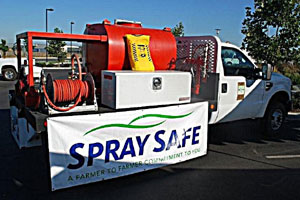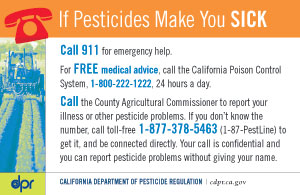Editor’s Note: This week we have the first of two special reports on pesticide drift.
In this week’s Quest radio piece, I talk to two pregnant organic onion workers who got sick after an apple farmer sprayed pesticides on a nearby orchard. Following a nearly three month investigation, the Kern County Ag Commissioner issued citations finding both the apple grower and the organic company at fault (see the citations here and here). Workers told me that even after the drift started, the organic farm’s supervisor encouraged them to keep bunching onions, telling them to put handkerchiefs over their mouths to block out the smell of the insecticides.
Whenever a big pesticide drift accident like this happens, it raises important questions: How often do these kinds of incidents occur? Are things getting better for people in communities near where pesticides are sprayed?
That’s hard to tell, because of the way the Department of Pesticide Regulation (DPR) and County Ag Commissioners keep track of the data. There’s no single enforcement code to categorize incidents as “agricultural drift affecting humans.”


